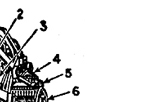APOGEAN
All this floating is ridiculous,
and the stars,
like goldfish in a bowl, flutter and plume
to remind at this distance love isn't
urgent or imminent: it's a penny in a fusebox
to keep the lights going. On and down
one could follow a strand of kelp
to a den of slime, the octopus'
garden,
if the light lasted longer than air—
but it never does. The night, the dark
and the clouds come, and driving
home,
the cows on their knees huddle in fields.
It looks like rain, a voice will say,
but in truth it looks like time
punctuated with water. Here, too, come
the trees I misname and all the birds
changed without permission, lonesome
in their breasts for the old color, a signature
their mates would recognize, a song
to once again fit and fill their
throats.
Apologies on old scraps are everywhere
like leaves in autumn, caught in a sleeve
or nestled on the wide, upturned brim of a hat.
This room fills with air when I leave it,
like a heart with blood, or lives with time—
the matters of course ticked off
like seconds or groceries presently needed
and absently bought. From the ceiling
a chandelier has bloomed like a
glass lotus—
a troupe of dancers twirl: a dog barks:
in its mouth a lamb's femur cracks like fire.
APOGEAN
Paul
Guest
ON APOGEAN
APOGEAN began in my mind (where else?) with a different title which, if kept, might have produced an entirely different poem. That title was "Paul Guest’s Greatest Hits," a cheeky enough title, I suppose. My idea was for the poem to be an anthology, of sorts, of various moves that seem to appear repeatedly in my poems. Someone more comfortable with such language might call them tropes. I wanted to do a commentary on my own poems, using a poem of my own. I spent several Sunday afternoon hours getting nowhere with the poem; I couldn't find the right approach to it, the right way in. It was a gorgeous mid-autumn day and I was hungry, so I did what I rarely allow myself to do: leave a poem mid-way in its writing, though in this case I was hardly in the middle of anything, except a headache. So I went for a walk, and had lunch, and at some point, flashed on the word apogean. Dropping the jokey, winking tone of the original title/idea proved to oil the wheels and hinges up in my head. By the time I'd hurried home the first two stanzas were largely written. The poem is an anodyne against loneliness, using some of the trusty figures that my imagination seizes upon to animate all kinds of absence: of gravity, of light, of love, of simple company.
